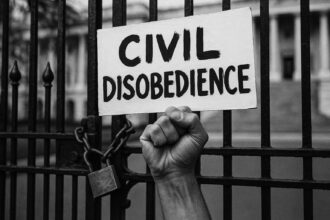Chancellor Jeremy Hunt announces a significant reduction in national insurance rates, marking the lowest level since 1975, as part of wider efforts to alleviate the tax burden on millions of workers and self-employed individuals in the UK.
The UK government has implemented a historic cut in personal taxes, reducing national insurance rates by 2p, marking the lowest level since 1975. This initiative, announced by Chancellor Jeremy Hunt, is designed to provide relief to millions of workers and self-employed individuals across the country. The reduction sees national insurance rates decrease from 10% to 8%, enabling the average employee to save approximately £450 annually, while self-employed individuals are set to benefit from a £350 reduction.
Despite the immediate financial relief provided by the tax cuts, experts have raised concerns regarding the potential long-term impacts of fiscal drag. This phenomenon occurs as the thresholds for income tax remain frozen, consequently drawing more taxpayers into higher tax bands as wages increase. The Office for Budget Responsibility has estimated that the cut in national insurance will cost the government around £10.5 billion annually.
The backdrop of these tax changes is a wider governmental aim to alleviate the tax burden on citizens. During a visit to a Selco Builders Warehouse in London, Chancellor Rishi Sunak, alongside former Health Secretary Jeremy Hunt, interacted with workers, shedding light on the tax cut’s implications. Sunak emphasized the significance of reducing taxes, invoking a previous cut initiated by Hunt that resulted in significant savings for workers. They engaged directly with the workforce, utilizing the opportunity to demonstrate the tangible benefits of the government’s fiscal policies.
However, not all responses to the government’s budget have been positive. The Conservative Democratic Organisation (CDO), a group formed by Conservatives disillusioned after the tenures of Boris Johnson and Liz Truss, has voiced significant criticism. Labelling the Conservative Party as “burnt toast” post-budget, they argue that the financial measures offer little to working people and disproportionately benefit wealthier individuals. This criticism highlights a growing divide within the party’s grassroots, with calls for greater involvement in policy-making and candidate selection.
Adding to the political tension, Scottish Conservative leader Douglas Ross has openly opposed the extension of the windfall tax plan until 2029, a measure defended by the Chancellor and attributed to the ongoing impact of the Ukraine war on energy markets. Ross’s stance, along with disagreements within the party, underscores the current challenges faced by the Conservative leadership in uniting its base and navigating through economic and political discontent.
These developments illustrate a significant moment for UK fiscal policy and the Conservative Party, as they grapple with the dual objectives of economic stimulation and addressing internal party dissention.













